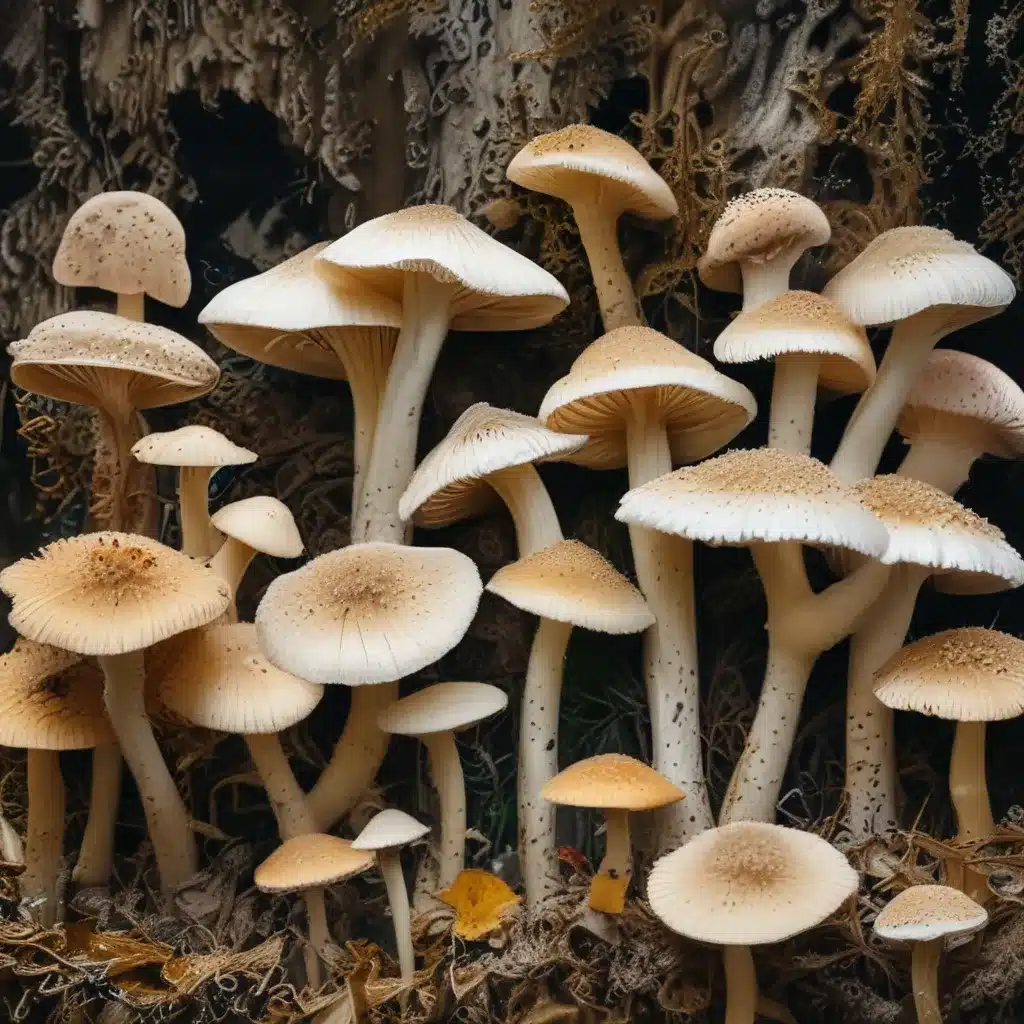
Mushrooms to the Rescue: Fungi-Based Plastics are the Future
You know, I’ve always been fascinated by the incredible capabilities of nature. Just when you think you’ve seen it all, along comes a humble little fungus and completely blows your mind. That’s exactly what happened when I stumbled upon the research on using Fomes fomentarius, a.k.a. the “hoof fungus,” to create a whole new class of sustainable materials.
As the researchers at the VTT Technical Research Centre of Finland discovered, this unassuming fungus has the remarkable ability to yield a wide range of materials, from soft and spongy to tough and woody. And get this – they’ve already created a prototype set of headphones using the fungus’s mycelium, the thread-like structure that makes up its body.
Can you imagine that? Headphones made from mushrooms! It’s like something straight out of a sci-fi movie. But the real kicker is that these fungus-based materials could potentially replace a whole host of plastic products, from memory foam to aircraft exoskeletons. Talk about a game-changer.
The Rise of Mycelium Madness
Now, I know what you’re thinking – “Mushrooms? Really? How on earth are those going to replace plastic?” Well, my friend, let me tell you, the world of mycelium-based materials is about to turn the plastic industry on its head.
As it turns out, the unique structure of the Fomes fomentarius fungus allows it to produce a wide range of materials with different properties. The tough outer crust could be used for impact-resistant coatings, the soft middle layer could replicate leather, and the wood-like inner layer could have all sorts of applications.
And the best part? These materials are biodegradable and can be reused to create new products, essentially creating a closed-loop manufacturing process. Goodbye, endless piles of plastic waste in landfills and oceans! Hello, sustainable, eco-friendly alternatives.
Fungi-Based Plastics: The Future is Fungal
Now, I know what you’re probably thinking – “But wait, how practical is this really? Aren’t we just talking about a bunch of hippie-dippy, tree-hugging nonsense?” Well, let me tell you, the potential of fungi-based plastics is anything but a pipe dream.
As the folks over on Reddit have been discussing, the research into mycelium-based materials is advancing rapidly, and the results are nothing short of impressive. Sure, there’s still a long way to go before we can start mass-producing these fungal wonders, but the progress being made is undeniable.
And let’s not forget the broader environmental implications. Plastics made from fossil fuels are notoriously difficult to recycle and often end up polluting our landscapes and waterways. But with mushroom-based plastics, we could cut down on this waste and create a more sustainable future for our planet.
So, whether you’re in the market for a new pair of headphones or just looking to do your part in saving the environment, keep an eye out for the rise of fungi-based plastics. Because the future is fungal, my friends, and it’s going to be one wild ride.
Empowering Communities Through Local Repair
Now, I know what you’re probably thinking – “This is all well and good, but what does it have to do with computer repair in the UK?” Well, let me tell you, the connection is stronger than you might think.
You see, as we move towards a more sustainable future, the role of local repair services like IT Fix becomes more important than ever. By keeping our electronics in use for longer and reducing the need for new plastic-heavy devices, we can make a real difference in reducing waste and environmental impact.
And when you pair that with the potential of fungi-based materials, the possibilities are endless. Imagine a world where your broken laptop or smartphone could be repaired with biodegradable, eco-friendly components made from mushrooms. It’s a future that’s not only better for the planet, but also empowers local communities to take control of their own technological destiny.
So, the next time you’re in need of computer repair, don’t just think of it as a necessary evil. Think of it as a way to be a part of the mushroom revolution, and to help build a more sustainable future for us all. Because when it comes to the environment, we’re all in this together – and a little bit of fungal magic might be just what we need to turn things around.












